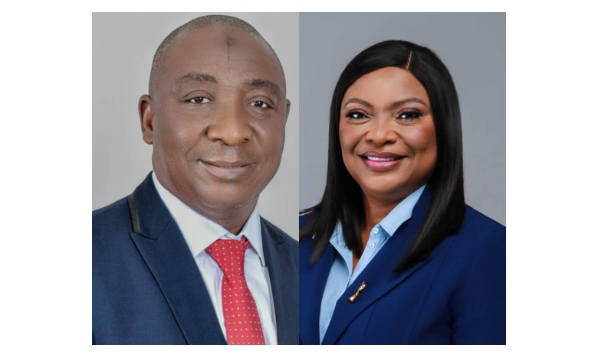
Nigeria’s footprint in world football administration has deepened with the appointment of three distinguished Nigerians — Ibrahim Musa Gusau, Abdulhakeem Mustapha (SAN), and Ayishat “Aisha” Falode — to prominent FIFA Standing Committees, signaling a new chapter in the nation’s growing influence on global football governance.
The appointments, announced this week, position Nigeria strategically across FIFA’s decision-making ecosystem. Nigeria Football Federation (NFF) President Ibrahim Musa Gusau joins the FIFA Men’s Club Competitions Committee; renowned legal luminary Abdulhakeem Mustapha (SAN) takes a seat on the FIFA Anti-Racism and Anti-Discrimination Committee; while celebrated sports broadcaster and administrator Aisha Falode joins the FIFA Media and Communications Committee.
Reacting to the development, Amaju Melvin Pinnick, Nigeria’s former NFF President and current Deputy Chair of the FIFA Men’s National Teams Competitions Committee, congratulated the trio, describing their selection as “a reflection of Nigeria’s strategic relevance and intellectual capital within the international football community.”
Pinnick, who continues to serve alongside Paraguay’s Robert Harrison in overseeing FIFA’s men’s national team tournaments, commended the appointees for their individual excellence and long-standing contributions to football administration and development.
“President Gusau’s unifying leadership, Mustapha’s integrity, and Falode’s trailblazing legacy in sports media and women’s football represent the best of Nigerian excellence,” Pinnick said.
“Together, they embody a new era of professionalism, innovation, and integrity for Nigerian football on the world stage.”
Falode’s inclusion in the FIFA Media and Communications Committee stands out as particularly historic. A pioneer in sports journalism and women’s football administration, she was previously the Chairperson of the Nigeria Women’s Football League (NWFL) and the first female member of CAF’s Media and Communications Committee. Her appointment further cements her reputation as a driving force for gender equity and professionalism in African sports governance.
For Nigeria, these collective appointments signal more than just representation—they reinforce the nation’s ascent as a key stakeholder in FIFA’s evolving global framework, spanning competitions, governance, and social responsibility.
With Pinnick’s ongoing service and the trio’s new mandates, Nigeria’s voice within FIFA’s corridors of power has never been stronger—ushering in what many describe as a defining era for the country’s football diplomacy.